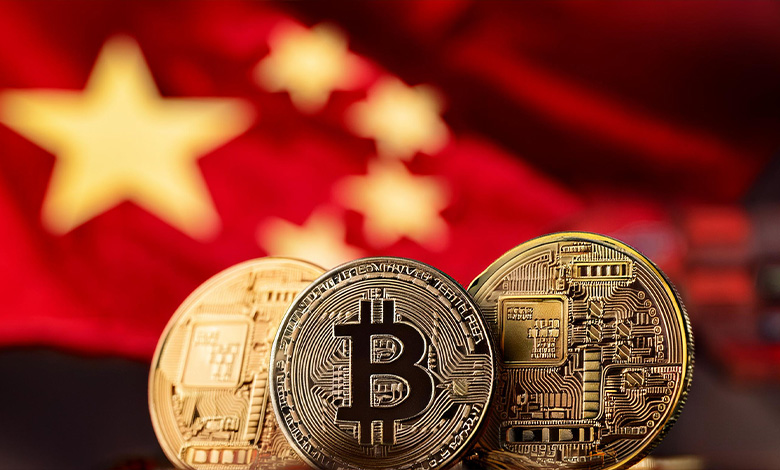China Considers Overhaul of How Seized Cryptocurrencies Are Handled

China’s growing stockpile of cryptocurrencies seized during criminal investigations is sparking internal debate among legal, financial, and government circles. With crypto trading banned in the country and digital assets not recognized as legal tender, the absence of clear regulations on how to manage seized assets has led to fragmented and opaque practices. This lack of clarity is raising concerns over potential loopholes for corruption and lawbreaking.
Legal professionals, along with senior judges and police officials, are now urging reforms. They are working on proposals to establish more consistent rules for the treatment of confiscated crypto assets—a move that could have significant implications for China’s crypto policy.
According to lawyers, the current situation is unsustainable. “A makeshift solution that, strictly speaking, is not fully in line with China’s current ban on crypto trading,” said Chen Shi, professor at Zhongnan University of Economics and Law. He was among experts who convened at a January seminar to examine possible regulatory changes.
One of the key challenges lies in the contradiction between the national ban on crypto and the local governments’ practical need to liquidate digital assets. “China’s ban on crypto trading conflicts with local authorities’ need to liquidate seized digital currencies,” said Guo Zhihao, a Shenzhen-based lawyer and senior partner at Beijing Yingke Law Firm.
Guo believes the People’s Bank of China would be better suited to handle these tokens, possibly by selling them abroad or creating a government-held crypto reserve similar to former U.S. President Donald Trump’s newly announced plan. Trump has pledged to deregulate crypto and build a bitcoin reserve as part of his second presidential term—adding geopolitical weight to the issue.
Although the seminars held so far do not guarantee any immediate policy shifts, there’s growing consensus among participants about the need for judicial recognition of cryptocurrencies as assets and a uniform process for their disposal.
Crypto-Related Criminal Activity Surges
These discussions are accelerating in parallel with a sharp rise in crypto-related criminal cases in China, including internet fraud, money laundering, and illegal gambling. Blockchain security firm SAFEIS reported that money involved in such crimes surged tenfold to 430.7 billion yuan ($59 billion) in 2023. During the same year, authorities prosecuted 3,032 individuals for crypto-linked money laundering.
The spike in these crimes has also led to a significant boost in local governments’ financial recovery from fines and seizures. Public budget data shows that penalty and confiscation revenues hit a record 378 billion yuan in 2023, reflecting a 65% increase over five years.
According to Liu Honglin, a lawyer advising several local governments, “seized cryptocurrencies have become a major contributor to local finances” in cities where such assets are increasingly used in crimes. However, the absence of oversight for private firms that assist with crypto liquidation poses legal and ethical challenges. “That needs to change,” Liu added.
One such private firm, Jiafenxiang, has reportedly helped local governments in Jiangsu province—including Xuzhou, Hua’an, and Taizhou—to liquidate more than 3 billion yuan worth of crypto on offshore markets since 2018. Documents reviewed by Reuters show the U.S. dollar proceeds were converted into yuan and deposited into local finance bureaus’ accounts via domestic banks. Jiafenxiang declined to comment, and the involved local governments did not respond to Reuters’ inquiries.
According to River, a bitcoin investment firm, China’s local governments collectively held about 15,000 bitcoins worth $1.4 billion at the end of 2023—placing the country 14th globally in terms of bitcoin holdings.
Calls for Structure and Oversight
Crypto services provider Bit Jungle argues that private companies can legally help with asset liquidation—provided they protect the crypto assets, use licensed offshore exchanges, and adhere to capital control regulations.
“This is a highly profitable business that attracts more and more participants,” said Sun Jun, a crypto lawyer and senior partner at Shanghai Landing Law Offices. Sun recommends formalizing the crypto disposal process by defining the legal status of virtual currencies, establishing a dedicated agency, and vetting third-party firms.
Other experts support centralization. Ru Haiyang, co-CEO of licensed Hong Kong crypto exchange HashKey, suggested that China could mirror Trump’s approach and build a strategic reserve with confiscated crypto, possibly under the central government’s purview.
Winston Ma, adjunct professor at NYU Law and former managing director of China Investment Corporation, supports this idea as well. “A more centralised management would help China maximize the value of the seized cryptocurrencies,” he said. He even proposed the creation of a sovereign crypto fund based in Hong Kong, where crypto trading is legal.
As policymakers continue to deliberate, China’s approach to handling seized digital assets may soon undergo a major shift—one that could shape the country’s broader stance on crypto regulation and financial sovereignty.





